Your toilet is the most crucial place in your home as it gives you the relief and comfort you need. And if you feel something messy and unidentified, especially if you find the rotten egg smell out of the toilet, then the reassurance that you are searching for must be nipped in the bud. As a homeowner, you always have that instinct in mind that your washroom remains fragrant and aromatic, but the bad smell of rotten eggs nailed the coffin. You must have been searching for the best and easiest ways to get rid of this annoying issue. No worries, you are at the right site because here we share colossal ideas about different toilet issues, and in this article, I will explain the possible causes, symptoms, and feasible solutions to the acute smell of rotten eggs.
- Sometimes the problem is with the water heater, not the toilet. When magnesium reacts with the bacteria, it may cause a bad odor. In that case, use aluminum fittings and clean the water heater with hydrogen peroxide.
- If you have a water storage system, clean the filter and disinfect the tank wall.
- Sometimes sink, vent, or drainage pipes get blocked and cause a rotten egg smell. So you need to unblock them.
- A dry trapway (S-Trap or P-Trap) may be the reason behind this issue. It occurs when the toilet has not been used for a long time.
Sewer gas smell in the house: What is it?
You must be surprised to sneak something bad while you enter the washroom to use the toilet. In most cases, you feel a pungent and bitter smell that can punch your nose and give you a feeling that rotten eggs have been flushed in the toilet, and in the aftermath, it spreads deadly gasses. Now the question is, what is sewer gas?
Typically sewer gas is mostly combined with methane gas, carbon dioxide, hydrogen, ammonia, nitrogen, sulfur dioxide, and many other detrimental gasses. Though we have opined that this gas does not possess that much killer instinct, there is a gas that can actually cause some serious issues, and that gas is Methane; it has a bad reputation for causing devastating consequences to the health as well as the environment issues.
How do you get rid of the bad smell from the toilet?
There is not only this rotten smell found in the toilet. Several other annoying smells can make daily life really miserable. Let us give a closer look at some of the other acute smells in the bathroom, 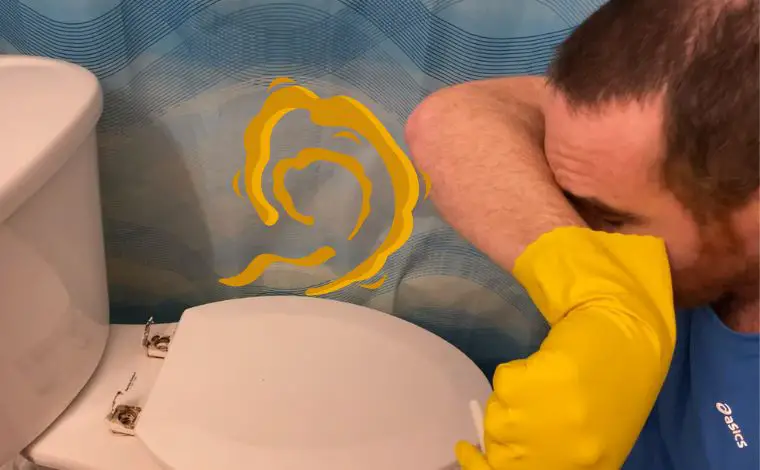
-
Moldy smells
Causes: Maybe a sign of a leaking or bursting of the drainage pipe
Source of production: Bad plumbing connections in the water hose pipe or in the drainage pipe
Possible solution: Needs decent plumbing solutions and exact plumbing connections
Specification: The symptoms or the molds may be colorful in appearance or possess no color.
-
Rotten, fishy, acute smells
Causes: Leakage in the vent pipe
Source of production: Broken vent pipe may exert the bad, rotten fishy pungent smell
Possible solution: Fix the vent pipe as soon as possible
Specification: No visual appearances are noted.
Causes: Trapways, sewage, and the drainage pipe may have clogged badly
Source of production: Blockage in the main drainage line
Possible solution: Use vinegar, baking soda, or borax mixture and flush them several times.
Specification: Human poops, sanitary products, or foreign particles may be visible if you look closely.
Causes: The toilet bowl may have cracks that spill the urine out if the toilet bowl
Source of production: Urine spillage and outbreak on the floor and outside the toilet territory
Possible solution: Keep the bathroom floor fresh by using different toilet cleaners as well as clean the toilet bowl and tank.
Specification: Liquid urine that may have several colors like straw, red, orange, yellow, etc.
Detrimental effects of hydrogen sulfide
Hydrogen sulfide is a harmful element with several human and environmental effects that can be destructive. In this phase, I will elaborate on the widespread effects of this toxic element,
Acute health effects:
Hydrogen sulfide can cause some of the biggest diseases in the human body. The primary route of exposure is inhalation. Destructive inhalation exposure to high concentrations may cause acute collapse, paralysis caused by respiratory symptoms, cyanosis, convulsions, coma, and cardiac arrhythmias; clear exposure to low concentrations may damage the eyes and respiratory organs, acute sore throat, cough, and dyspnea.
There may be acute ocular exposure to high concentrations, irritation with kerato-conjunctivitis, punctate corneal erosion, blepharospasm, lacrimation, and photophobia may also happen. Very rare information says that effects from repeated exposure are the same as acute exposure, internal respiratory organs, neurological, and ocular effects at high concentrations. This detrimental chemical may also affect the reproductive and developmental effects of the body.
Environmental effects:
H2S, or Hydrogen sulfide, is a prime participant in the global cycle of sulfur. It has been oxidized heavily in the atmosphere to SO2, which can then be transferred into the sulfate through three different chemical reactions and chain bondings. H2S is very much soluble in water, which causes the formation of the detrimental sulfhydric acid, which is extremely corrosive to metals, and also plays a vital role in the acidic deposition of soil and water, which is really not good for the environment. Some extra data is found on the environmental issues of sulfur dioxide and sulfate in the research papers for these two pollutants. Hydrogen sulfide can be very destructive if it is mixed with water, as the species that live in water can be the worst sufferer.
What are the reasons behind the rotten smell of eggs coming from the toilet?
I can elaborate on hundreds of thousands of causes behind the production of the rotten eggs smell, but here I will depict some of the most prominent causes of this acute smell, and here is the list of the tentative causes,
Severe clogs in the toilet drainage pipe
The most annoying thing about the toilet is the clogs and blockage. Some foreign particles like baby diapers, sanitary napkins, undissolved tissue papers, cotton swabs, and many more can create severe clogs in the drainage or the sewerage pipe. So you must be very careful while flushing down into the toilet as the clogs can also create an unnecessary burden on the septic tank of the toilet system, and if the septic tank cannot digest those particles, it may damage the whole system and can cause you a heavy bump. 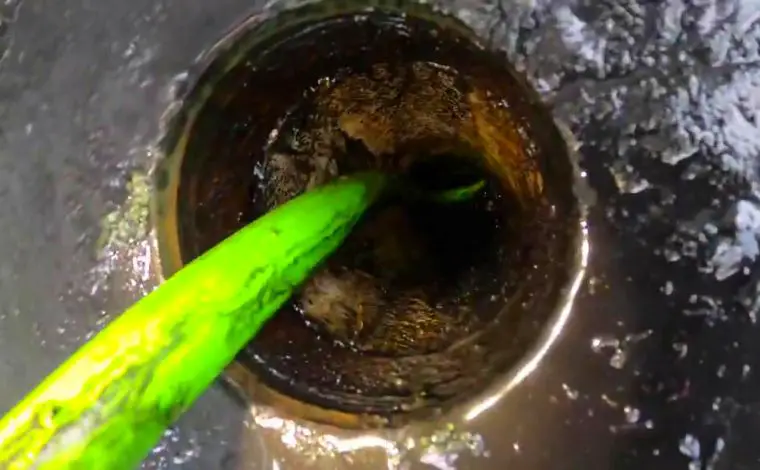
The toilet flapper may be damaged
You could not believe it, but the toilet’s flapper in the water tank may be out of order, and it needs a quick repair so that it can not overcome the damage to the toilet. The flapper is the most consistent part of the toilet tank that controls the entrance of water into the water bowl, and if the flapper is not the right match to the hole in the tank, the water tank can not hold water, and as a result, water is inundated into the toilet bowl that causes incessant flowing of water. This phenomenon wastes a lot of water. A rusty and corroded flapper can produce a foul smell.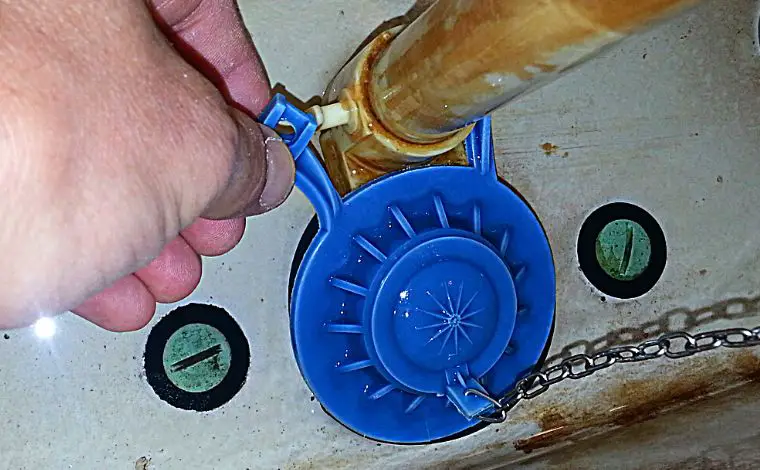
Solve:
Check the chain that is attached to the trip lever. The chain may be discontinued from the trip lever, making the flapper stop working. The flapper may be damaged due to extensive minerals present in the water. To replace the flapper if it seems to be unhealthy by visual inspection.
Growing mold, mildews, and bacteria in the system
The most common aspect of the toilet is the exponential growth of mildew and bacteria, and these have bad effects creating a nuisance in the bathroom. These molds and bacterias are the main cause of foul smells in the toilet. There are tons of solutions to this problem. Some effective ways of eliminating these can be discussed below, 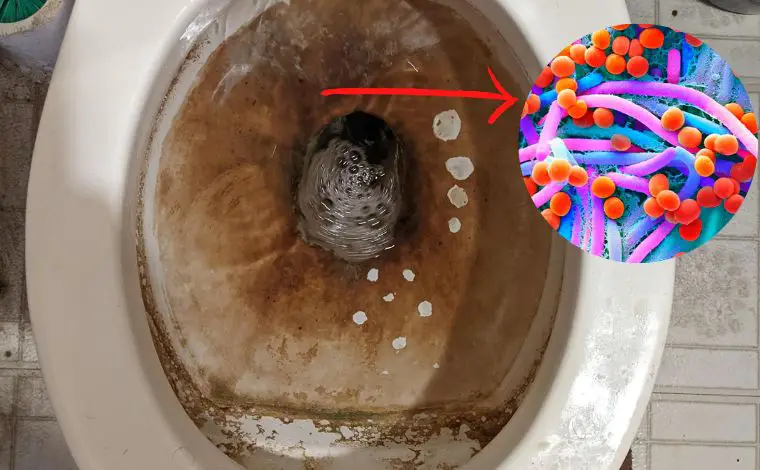
Solve:
Use mild bleach to sweep away all these germs and bacteria. Just apply some quantity of bleach to the toilet bowl and let it sit for a few hours. Some hours later, take a toilet brush and clean the toilet. If this does not work well, you should always have a plan B. That is, you can apply a mixture of vinegar and baking soda. The process is all the same as before, apply and wait for some time. These two methods effectively maintain the toilet and keep it free from acute germs and bacteria.
Vent pipe issue
The vent pipe is responsible for keeping the bathroom fresh and clean, and somehow if the vent pipe is obstructed by any foreign objects like bird nests or leaves, it will impede the circulation of the solid-liquid waste. The point that should be kept in mind is that it must have some angle so that it can create the slope, and thus, it becomes easier to remove all the waste from the bathroom.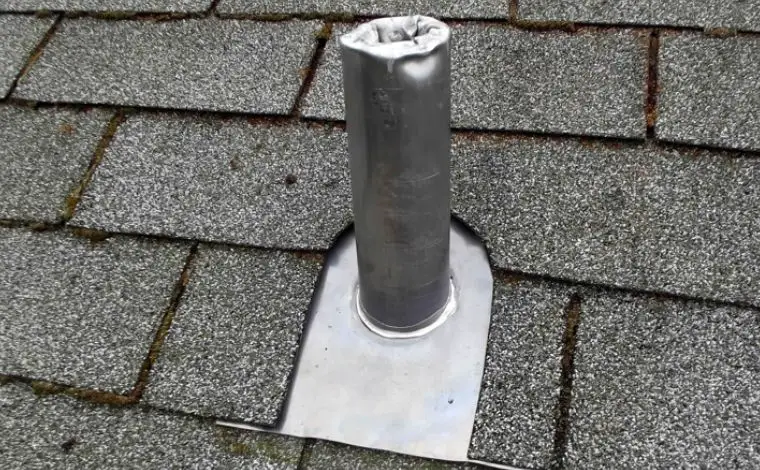
The flange sealants may be leaking
The flange is the most important part of the toilet that is situated at the lowermost part of the toilet, and it is directly connected to the exit drainage pipe. The toilet is attached with the help of the sealant, and the other side is attached to the exit pipe. If somehow the sealant breaks, then the acute smell of the rotten egg may be coming out of the drainage pipe. So be cautious of the sealant that is applied at the flange.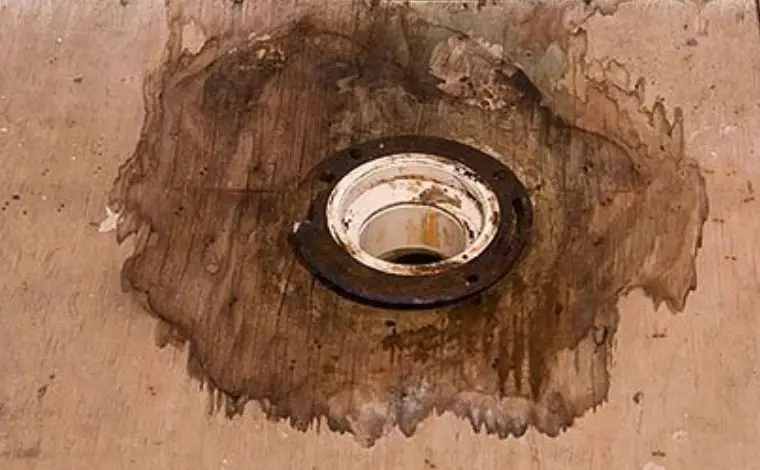
How do you eradicate the rotten egg smell from the toilet?
The foul smell of rotten eggs or sulfur is one of the disastrous things you encounter in your toilet, and nothing is too evil than the fact that the rotten egg smells so foul that it cannot be bearable by a person. First, you can apply some of the inexorable chemicals in the toilet to mitigate the rotten smell of eggs.
Call in a professional to handle the matter:
You can first call in a professional plumber if the toilet is clogged or jammed and smells like rotten eggs. Destructible bacteria in the contaminated water accompanied by the sewer gas, which may be severely dangerous, is not an issue to take lightly. Let it be wholly handed over to the plumber, as he can be the best person to solve the acute smelling problem.
Repair the P-trap:
It would help if you always be vigilant of the rotten egg smell coming from a toilet, as it could be life-threatening and cause a devastating bump to your health. Harmful bacteria may be in the water if the toilet gives off a pungent sulfur smell. If the bathroom smells like a sewer, There might be ghastly corrosion in the P-trap of the toilet. 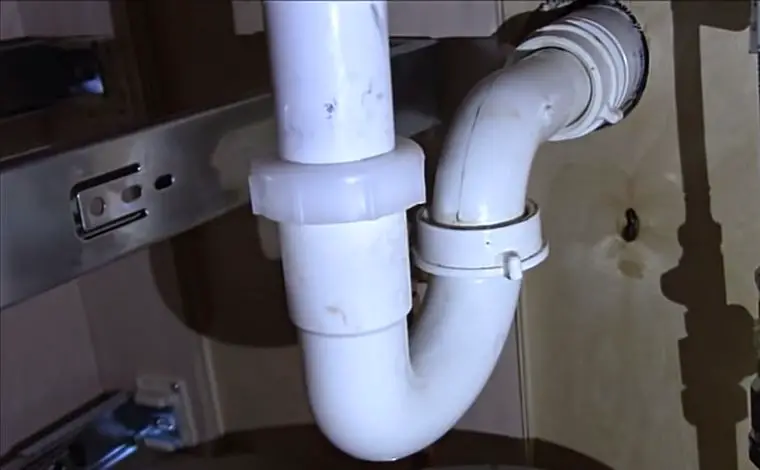
Let chlorine take the throne:
Concentrated chlorine treatment is one of the best ways to terminate the bad smell from the toilet. The simplest way to implement chlorine is in the water tank. Let it take all the place in the water tank and in the toilet bowl. After 24 hours, initiate a string flush and find your toilet odor-free. But you must always bear in mind that this is unnecessary and works all the time. But it is one of the proven techniques for capturing the bad smell of rotten eggs from the bathroom.
Capitalize on the water softening system:
Sometimes bad elements and foreign particles in the water may cause the water to have a nasty and foul smell that might be offensive to the user while using the toilet. There might be something unconventional with the bathroom, and you must keep a vigilant eye on this aspect. Here I will elaborate with you on some of the greatest and most effective ideas for disseminating hardness from the water itself.
Hard water mostly contains dissolved minerals, and that’s hard on your household. Your clothes and dishes will be cleaner by adding a soft water conditioner. Fabrics will be softer, and the respective appliances will stay fresh and clean. Strong water softener elements can be pivotal in terminating the suspicious smells of chlorine, musty, rotten eggs, and gasoline. You can find some useful and effective water softeners at the nearest store; make sure that you perform tentative research about the products.
Check the vent pipe for leakage:
Unintentional leakages from the vent pipe may be the biggest reason for exerting a rotten egg smell in the bathroom. The main responsibility of the vent pipe is to exit the bad smell of the bathroom. If the vent pipes are not installed correctly, then there is a chance it will cause a rotten egg smell. If you encounter any clogging problem with the pipes, the clogged area needs to be cut down and connected with a new vent pipe. Replace the vent pipe if it is out of order or in a really miserable condition in terms of exhausting foul smells.
Wrapping up
It is quite a common issue that the toilet emits a bad smell of rotten eggs, and almost every house owner is obsessed with the trouble. There are not only the toilet but also the basin, bathtub, sewer drain, and kitchen sink that can also disseminate foul smells. So first, you need to be cautious and vigilant about the source of this foul smell. So what next about the acute issue? Simply follow the above instructions carefully, and in the end, you will be relieved from this annoying issue. Let us know how it works in the case of your washroom.
FAQs
Why does sulfur smell like rotten eggs?
Suppose your bathroom water smells like rotten eggs. In that case, the odor is usually facilitated by sulfur bacteria and Hydrogen Sulfide indomitable standards that can be seen in the municipality’s water supply system. Suppose you are experiencing the smell when using the shower or flushing the toilet. In that case, there seems to have been an irregular chemical reaction inside the water supply system, or stubborn clogs may have resulted in this foul smell.
The rotten egg smell excruciating in your daily life is most likely the hydrogen sulfide (H2S) gas. Hydrogen sulfide gas is considered a natural product that is prone to decay and dissolve. In a residential or commercial environment, the most natural cause of this acute sulfur smell is the result of decomposition in septic or sewer systems. Some regions possess too many sulfur elements in the soil and water and are prone to detectable hydrogen sulfide in their natural system.
What are the signs of sulfur in the water?
If you smell something like stinky and rotten eggs, you have to understand that some hydrogen sulfide is in the water. This smell is because of the internal juncture and the presence of foreign elements in the water, like germs, bacteria, dust, and many unnoticeable microorganisms. So it is the natural constitution of sulfur to be smelled like rotten eggs; it’s inevitable.
We are really lucky to have a hard-working, multi-skilled plumber on our team. Collin D. Gallegos, a professional plumber who has worked with us since 2012, is an expert in vent, septic, and drainage systems. He is a Certified Master Plumber and has worked on various commercial plumbing projects. He usually helps our readers resolve plumbing and pipe-related issues with a proper DIY troubleshooting and repair guide.